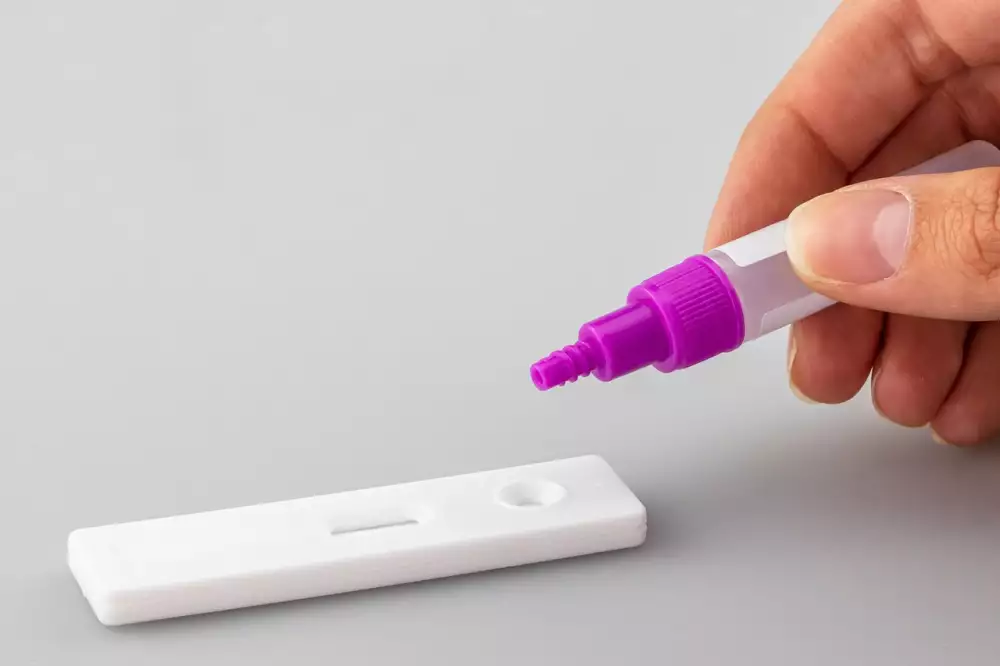Conquer Your Gut: The H. Pylori Test You Can Take at Home

What is H. pylori infection?
Helicobacter pylori (H. pylori) infection occurs when a type of bacteria called Helicobacter pylori infects your stomach.
Symptoms of H. pylori infection
Many people with H. pylori have no symptoms. When the infection leads to an ulcer, symptoms may include a dull or burning pain in your abdomen, feeling bloated, loss of appetite, nausea, frequent burping, and unintentional weight loss.
If you experience these symptoms, especially if they are severe, persistent, or recur frequently, it's important to see your doctor.
Important note: This information is for informational purposes only and is not intended as a substitute for professional medical advice, diagnosis, or treatment. Always seek the advice of your physician or other qualified healthcare provider with any questions you may have regarding a medical condition.
Types of at-home H. pylori tests
There are two main types of at-home H. pylori tests: stool antigen tests and breath tests. Stool antigen tests require you to collect a stool sample and send it to a lab for analysis. These tests look for the presence of H. pylori antigens in your stool, which can indicate an active infection. Breath tests, on the other hand, require you to swallow a capsule containing a special substance. After a short period, you breathe into a collection bag. The test measures the amount of certain gases in your breath, which can indicate the presence of H. pylori. Both stool antigen tests and breath tests are generally considered accurate when performed correctly.
How accurate are at-home tests?
At-home tests can be pretty accurate, but it really depends on what you're testing for and how you're using the test. Things like pregnancy tests, when used correctly, tend to be very reliable. They work by detecting a specific hormone in your urine, and if used as instructed, they're pretty good at giving accurate results.
On the other hand, at-home tests for things like COVID-19 or other infections might be a bit trickier. Their accuracy can be affected by things like how well you collect the sample and even when you test during the course of your illness. It's always a good idea to follow the instructions carefully and even consider following up with a healthcare professional if you have any doubts about the results or if you're experiencing symptoms.
When to see a doctor
It's essential to seek medical advice if you experience severe, persistent, or concerning symptoms. If your discomfort significantly impacts your daily life, it's crucial to consult a healthcare professional. Additionally, if you have any concerns about your health or notice any unusual changes, it's always best to err on the side of caution and seek professional medical guidance. Remember, early detection and treatment often lead to better outcomes.
Publikováno: 18. 06. 2024
Kategorie: Health



